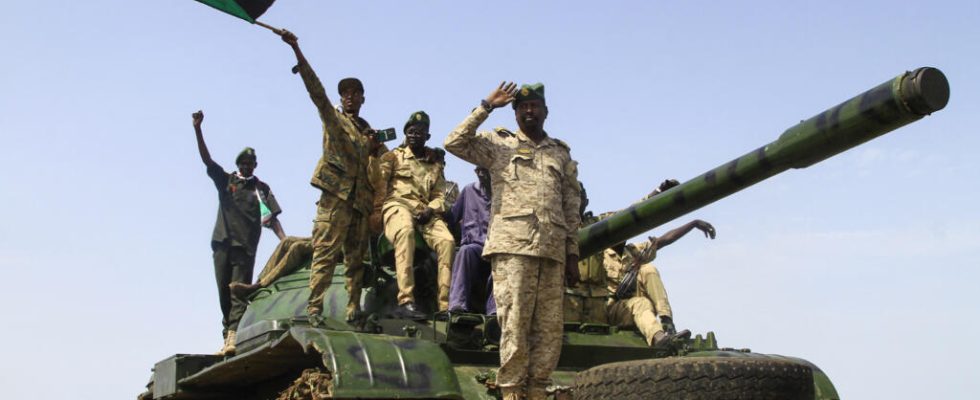Sudan entered its fifth month of war on Tuesday, August 15, and the conflict between the regular army of General Abdel Fattah al-Burhan and the Rapid Support Forces (FSR) – the paramilitaries led by General “Hemedti – doesn’t seem to be settling anytime soon. The humanitarian situation is dire, to the point where several major international humanitarian organizations sounded the alarm in a joint statement issued on Tuesday.
3 mins
The international community ” has no excuse to wait, these organizations say. In their joint statementofficials from Unicef, the World Food Program (WFP) and the World Health Organization (WHO) paint a gloomy picture of the situation in Sudan.
The first victims of this war, they say, are the women affected by violence and rape from the belligerents: they therefore need psychological assistance.
Another consequence of the conflict: medicines, food, electricity are also lacking. In all, 19 million people need humanitarian assistance in one way or another, whether in Sudan or in neighboring countries which host many refugees.
The UN has therefore launched two appeals for donations, but they have only been funded up to 27% for the moment. ” We have to change that “, launch to the international community to these humanitarian organizations.
The signatories of the appeal ask the fighters to end it ” immediately with this war. When the conflict broke out in Khartoum, each side said it was convinced that it would win in a few weeks. But more than four months laterthe war has even gained ground: nine of the 18 states that make up Sudan are today affected by the destruction of towns and villages.
The war between generals al-Burhan and “Hemedti” was “ inevitable »
The researcher specializing in Sudan Jérôme Tubiana looks back on the collapse of the country and the tipping point of a conflict which, according to him, was ” inevitable ” For years.
RFI : How from a conflict between two generals, the country collapsed ?
Jerome Tubiana: These two camps are the two heirs of the old regime of the regime of Omar al-Bashir. Omar el-Bashir managed to bring together within his regime this army, from which he himself came, but also other actors of power such as the intelligence services and these paramilitaries, the rapid support forces. Once part of this army and these rapid support forces, in 2019, decided to separate from Omar al-Bashir to maintain themselves in power, their confrontation was, if we can say, inevitable. .
Concretely, how did we arrive at such a generalized conflict between these two camps ?
From 2019, we see these rivalries rising, between Burhan and “Hemedti”. So a president and a vice-president who clash, but also, behind them, these very divergent and powerful interests. They are also two political actors who fight for the control of this power at the center. And then both are economic actors: the army, because it is an extremely powerful institutional economic actor in Sudan, and the FSR, more indirectly, because their main leaders (“Hemedti” and his family) are also, before being military players, economic players who have developed a lot, particularly in the gold mines.
What was the tipping point exactly?
From the moment when the extremely violent fighting took place in the capital, and when the paramilitaries of the rapid support forces began to control, so to speak, the very center of the country, which was the headquarters of all the armed forces, the country became very difficult to manage and partly collapsed. This paramilitary force (rapid support forces) has become large, powerful to the point of being able to compete with the army. So there is perhaps more room for these two actors inside Sudan.
The war between Generals al-Burhan and “Hemedti” “was, so to speak, inevitable”
